What Is Vitamin B1 Thiamine?
Vitamin B1, known as thiamine, is an essential water-soluble vitamin crucial to maintaining overall health and proper body functioning. Thiamine is involved in several critical bodily processes, primarily related to energy production. It acts as a coenzyme in the metabolism of carbohydrates, helping convert them into glucose, the body’s primary energy source. Thiamine is necessary to function correctly in various organs, including the brain, heart, and nervous system.
Thiamine’s primary function is to support energy production. It is essential to metabolize carbohydrates, breaking them down into glucose that the body can use as fuel. This conversion process is crucial for providing energy to the cells and tissues. Without adequate thiamine, the body may struggle to produce energy efficiently, leading to fatigue and weakness.
Another vital role of thiamine is its impact on the nervous system. It promotes nerve impulse transmission and aids in synthesizing certain neurotransmitters, molecules that let nerve cells communicate with one another. Thiamine deficiency can affect the nervous system and may lead to neurological symptoms such as tingling sensations, muscle weakness, and difficulties with coordination.
Thiamine also plays a significant role in brain function. Thiamine is essential for the brain’s steady source of energy. It participates in glucose metabolism, ensuring the brain has the power to function correctly. Adequate thiamine levels are essential for cognitive functions, memory, and overall brain health.
Furthermore, thiamine contributes to heart health by metabolizing fats and carbohydrates in the heart muscle. It aids in the correct operation of the cardiovascular system. Thiamine deficiency can lead to heart-related problems, such as an enlarged heart or impaired heart function.
In addition to its effects on energy production and the nervous system, thiamine supports the digestive system. It aids in producing hydrochloric acid in the stomach, which is necessary for the breakdown and digestion of food. Thiamine also helps maintain the health of the mucous membranes in the digestive tract.
Good dietary sources of thiamine include whole grains, legumes, nuts, pork, yeast, and fortified cereals. While severe thiamine deficiency is relatively rare in developed countries due to the availability of thiamine-rich foods and vitamin supplements, specific individuals may be at risk of poverty. These include those with alcohol use disorder, gastrointestinal disorders, or conditions that affect nutrient absorption. In such cases, thiamine supplements may be recommended to ensure adequate intake and prevent deficiency-related health issues.
What is Thiamine Mononitrate?
Thiamine mononitrate, also known as vitamin B1 mononitrate or thiamine nitrate, is a synthetic form of thiamine (vitamin B1) commonly used as a nutritional supplement and food additive. It is created by combining thiamine with a nitrate molecule, resulting in the formation of thiamine mononitrate. This compound is often used in the food industry as a fortifying agent to enhance the thiamine content of processed foods. It is also utilized in the production of dietary supplements.
Thiamine mononitrate has a chemical formula of C12H17N5O4S and a molecular weight of 327.36 g/mol. It is a stable compound that retains the essential properties of thiamine. When consumed, thiamine mononitrate is easily absorbed by the body and converted into its active form, thiamine pyrophosphate (TPP). Thiamine pyrophosphate is a cofactor involved in various enzymatic reactions related to energy production and metabolism.
One of the main applications of thiamine mononitrate is in the food industry. It is commonly used as a fortifying agent to increase the thiamine content in processed foods. It helps ensure that people obtain adequate thiamine from their diets. Thiamine mononitrate is also used to produce dietary supplements, serving as a convenient and stable source of thiamine.
In terms of its benefits, thiamine mononitrate provides the body with a source of thiamine, which is essential for numerous bodily functions. Thiamine is involved in energy production, nervous system function, brain, and cardiovascular health. Individuals can support these vital processes by supplementing thiamine intake through thiamine mononitrate.
It is important to note that thiamine mononitrate is a synthetic form of thiamine and may not be derived from natural sources. However, it remains a valuable tool for supplementing thiamine intake, mainly when limited raw food sources or thiamine deficiency is a concern. Thiamine mononitrate’s stability under various conditions, such as high temperatures and acidic environments, makes it particularly useful in food preservation and processing.
What is b1 Thiamine mono good for?
B1 Thiamine Mononitrate, a synthetic form of thiamine vitamin B1, provides several health benefits. It is essential for energy generation since it contributes to the breakdown of carbohydrates into glucose, the body’s primary fuel source. Thiamine mononitrate supports the proper functioning of the nervous system, aiding in nerve signal transmission and contributing to cognitive functions such as memory and concentration.
Additionally, B1 Thiamine Mononitrate supports cardiovascular health by participating in the metabolism of fats and carbohydrates in the heart muscle. It stimulates hydrochloric acid production in the stomach, which aids digestion and nutritional absorption. Thiamine mononitrate also plays a role in maintaining overall well-being by supporting enzymatic reactions throughout the body.
Pure Bulk Thiamine Mononitrate Powder Common Specifications
Thiamine mononitrate is a synthetic form of vitamin B1 thiamine commonly used in dietary supplements and fortified foods. Thiamine mono powder food grade with a purity suitable for food and beverage applications. The purity can range from 96% to 99% or higher.
| Type | Vitamin |
| Appearance | White crystalline powder |
| Content | ≥ 98% |
| Purity | ≥ 99% |
| Certifications | GRAS |
| Other Ingredient | None |
| Solvent | None |
| Water Content | ≤ 5% |
| Test Method | HPLC, UV-Vis |
| MOQ (minimum order quantity) | 1kg |
| Sample | Available (10-20g/bag) |
| OEM Service | Available, such as capsules, tablets, pills, etc. |
| ODM Service | Available |
| Private Label | Available |
| Contract Manufacturing | Available |
What Is The Source Of Vitamin B1 Thiamine?
- Whole grains: Thiamine is found in grain goods like brown rice, oats, whole wheat bread, and whole grain cereals. Grains’ outer bran and germ layers contain higher thiamine content than refined grains.
- Legumes: Legumes like beans, lentils, and peas are rich in thiamine. They provide a good amount of thiamine along with other beneficial nutrients.
- Nuts and seeds: Nuts like pistachios, pecans, and macadamia nuts, as well as grains like sunflower seeds and flaxseeds, contain thiamine. They are also packed with healthy fats and other essential nutrients.
- Pork: Pork, particularly lean cuts, is a good source of thiamine. It provides thiamine along with other vitamins and minerals.
- Fish: Certain types of fish, such as trout and tuna, contain thiamine. Fish is also rich in fatty acids, along with other essential elements.
- Fortified foods: Some products are fortified with thiamine to enhance their nutritional content. These include fortified breakfast cereals, bread, and other processed foods. Fortified foods can be a convenient thiamine source for individuals with limited access to natural food sources.
What Is Thiamine Powder Manufacturing Process?
- Sourcing raw materials: The process begins by sourcing raw materials required for thiamine production. Thiamine can be derived from both natural and synthetic sources. Natural sources include yeast, bacteria, and certain plants, while artificial sources involve chemical synthesis.
- Extraction or synthesis: The next step involves natural or chemical synthesis extraction, depending on the chosen source. Extraction from natural sources may include fermentation processes using microorganisms like yeast or bacteria. Synthetic production typically involves chemical reactions to create thiamine molecules.
- Purification: Once thiamine is obtained, it undergoes purification to remove impurities and contaminants. This process typically involves filtration, chromatography, or other separation techniques to isolate and purify thiamine.
- Drying: The purified thiamine is then subjected to drying processes to remove any remaining moisture. It can be achieved through techniques such as spray drying or vacuum drying, which help convert the thiamine into a dry powder form.
- Testing and quality control: Thiamine powder undergoes rigorous testing to meet the required quality standards. Various quality parameters are assessed, including purity, potency, and absence of contaminants. This step ensures that the final product is safe and meets regulatory requirements.
- Packaging: Once the thiamine powder passes quality control, it is packaged in suitable containers to protect it from moisture, light, and air. Proper packaging helps maintain the stability and shelf life of the product.

How To Manufacture B1 Thiamine Mono Powder?
- Sourcing raw materials: The process begins by sourcing raw materials required for thiamine mononitrate production. Thiamine mononitrate is synthesized from thiamine hydrochloride or thiamine base using nitric acid.
- Reaction and synthesis: Thiamine hydrochloride or thiamine base is reacted with nitric acid to form thiamine mononitrate. This chemical reaction adds a nitrate molecule to thiamine, creating thiamine mononitrate. The response is typically conducted under controlled conditions, such as specific temperature and pH, to ensure the desired conversion.
- Filtration and purification: The resulting mixture is then filtrated to separate solid impurities and unreacted components. This step helps remove unwanted particles and contaminants from the solution.
- Crystallization: The filtered solution containing thiamine mononitrate is then subjected to a crystallization process. Controlled cooling or evaporation techniques are employed to promote the formation of thiamine mononitrate crystals. Crystallization helps concentrate and purify the thiamine mononitrate further.
- Drying: The obtained thiamine mononitrate crystals are dried to remove any remaining moisture. Drying methods such as spray or vacuum drying are commonly used to convert crystals into dry powder.
- Grinding and milling: The dried thiamine mononitrate crystals may undergo crushing or milling to achieve the desired particle size and consistency. This step helps produce a fine powder suitable for formulation and packaging.
- Testing and quality control: Thiamine mononitrate powder undergoes rigorous testing to meet the required quality standards. Various quality parameters are assessed, including purity, potency, and absence of contaminants. This step ensures that the final product is safe and meets regulatory requirements.
- Packaging: Once the thiamine mononitrate powder passes quality control, it is packaged in suitable containers to protect it from moisture, light, and air. Proper packaging helps maintain the stability and shelf life of the product.

More Information
What are the Vitamin B1 Thiamine Benefits?
- Energy production: Thiamine mononitrate plays a crucial role in converting carbohydrates into glucose, the primary fuel for the body. It supports energy production, ensuring cells have the energy they need for proper functioning.
- Nervous system function: Thiamine mononitrate supports a healthy nervous system. It aids in the production of neurotransmitters, which are essential for nerve cell communication, and helps maintain the health of nerve cells.
- Cognitive function: Thiamine mononitrate is essential for brain health and cognitive function. It synthesizes neurotransmitters involved in memory, attention, and learning, supporting optimal mental performance.
- Cardiovascular health: Thiamine mononitrate is involved in the heart muscle’s metabolism of fats and carbohydrates. It supports heart health and contributes to the proper functioning of the cardiovascular system.
- Digestive system support: Thiamine mononitrate aids in producing hydrochloric acid in the stomach, assisting in the digestion of food. It supports healthy digestion and nutrient absorption.
Who Is The Top Bulk Thiamine Vitamin B1 Supplier?
Unlock the secret to superior Thiamine Vitamin B1 sourcing with Nutri Avenue. As the pinnacle of bulk Thiamine Vitamin B1 suppliers, we deliver unparalleled quality, reliability, and value. Trust in our expertise, exceptional customer service, and industry-leading products. Elevate your business with Nutri Avenue, your trusted partner in Thiamine Vitamin B1 excellence.
FAQs
No, thiamine mononitrate is a synthetic form of thiamine.
Yes, thiamine mononitrate is water-soluble.
Thiamine mononitrate includes a nitrate molecule, but it is not the same as nitrate alone.
Depending on the specific manufacturing process and origin, thiamine mononitrate can be produced from natural and synthetic sources.
Yes, thiamine mononitrate is commonly used as a food additive to fortify processed foods and increase thiamine content.
- Vitamin B1 Thiamine
- Vitamin B1 Benfotiamine

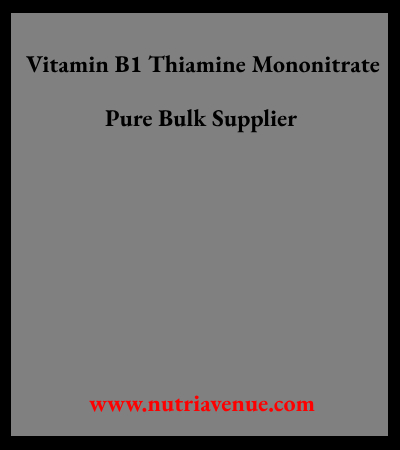
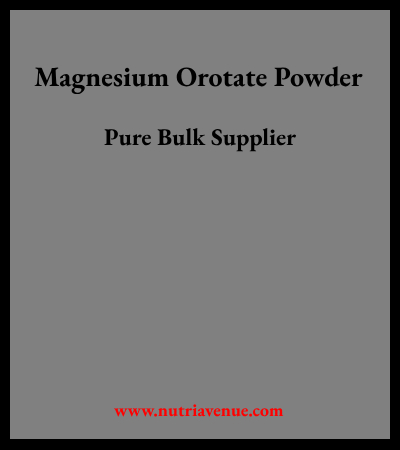
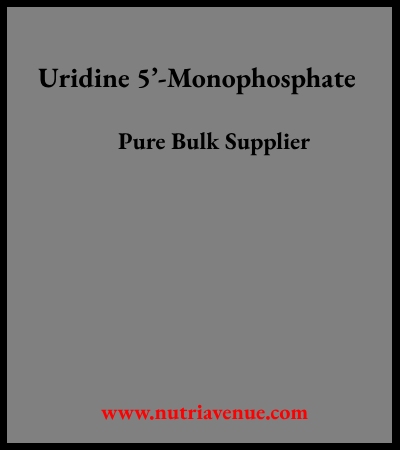
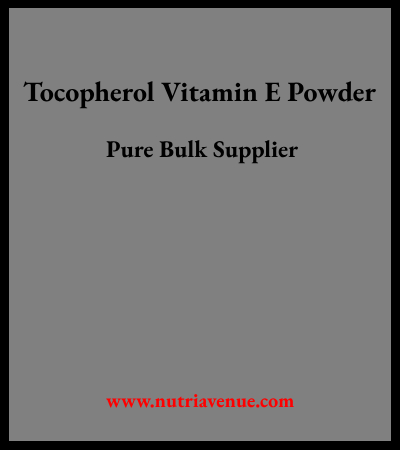
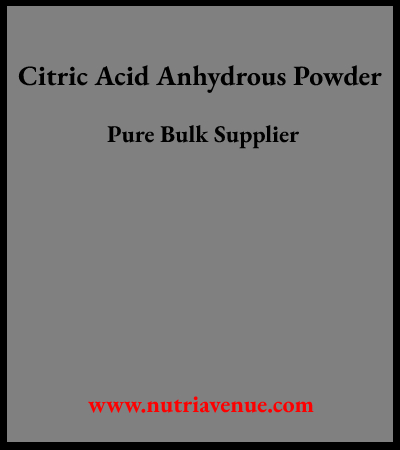



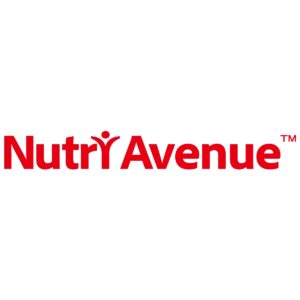

Reviews
There are no reviews yet.